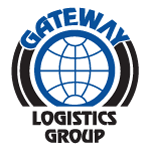United States Coast Guard officials made it clear at a Federal Maritime Commission hearing Thursday in Washington, D.C. the shipping industry will have to comply with International Maritime Organization verified gross mass requirements on July 1, 2016.
The U.S. Coast Guard has a succinct message for the container shipping industry: don’t expect a delay in the implementation of the International Maritime Organization’s new container weight verification mandate, and don’t look to the Coast Guard to enforce the mandate on shippers.
In a hearing facilitated by the Federal Maritime Commission in Washington, D.C. Thursday, USCG Rear Admiral Paul Thomas made clear that the global regulation applies to the loading of ships, and that the Coast Guard won’t play a policing role in ensuring shippers are complying with the regulation. That interaction will largely be determined by the commercial relationship between the ocean carrier, its shipper customers, and the container terminal where the ship is berthed.
The regulation, an amendment to the IMO’s long enforced Safety of Life at Sea convention called verified gross mass, requires that the “master shipper” on the bill of lading verify the weight of the container in one of two ways: by weighing the fully laden container or by calculating the weight of all cargo on the container and adding the tare weight of the container itself. Both methods are fraught with problems, shippers and non-vessel-operating common carriers contend.
Thursday’s hearing brought a bevy of testimony from agriculture shippers who bemoaned the disruption and cost the verification process might bring to well-established supply chains.

